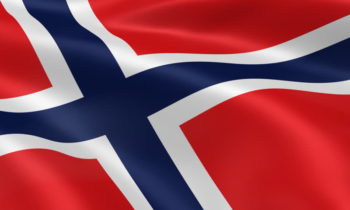 Prominent Remain supporters David Miliband (Labour), Nicky Morgan (Conservatives) and Nick Clegg proposed European Economic Area (EEA) membership on Monday as the best solution for the British economy.
Prominent Remain supporters David Miliband (Labour), Nicky Morgan (Conservatives) and Nick Clegg proposed European Economic Area (EEA) membership on Monday as the best solution for the British economy.
The EEA is a political anathema for most Brexiteers, while Theresa May‘s cabinet is facing a seemingly unbridgable cleavage over the preferred trade policy with the EU. While the EEA is recognized as a political non-starter, the British policy has no obvious point of departure, with May unable to lead on the basis of a consolidated policy either the government or her MPs.
Norway weighed in on the debate on Monday, proposing the “Norway”; the Conservative prime minister Erna Solberg told the Financial Times that the model was “on the shelf” and would be readily available to London.
Last week, the House of Lords voted for the UK to remain a member of the EEA after the end of the transition period. That vote was not merely a defeat for Theresa May, but also for the leader of the opposition, Jeremy Corbyn, since 80 peers sidelined Labour’s official position to support the status that is closer to full EU membership. EEA membership would retain the current status quo on Single Market access, but also on freedom of movement and contributions to the EU budget.
Centrist charge
The former foreign secretary, David Miliband, said Jeremy Corbyn risked becoming the “midwife of a hard Brexit,” due to his rejection of EEA. In an interview with BBC 4, Miliband called the EEA a “safe harbour” that would allow the UK to continue to have a “structured” relationship with the EU in goods and services.
Nick Clegg warned that leaving the Single Market would bring about the greatest introduction to trade barriers since the end of WWII.
The initiative reflects the preference of several Conservative, Labour and all of the Liberal MPs for a Norwegian model of Brexit, which would allow Ireland to remain without a border. However, this is a prospect infuriating to Brexit campaigners, as it would keep EU contributions and free movement of labour in place.
The British employers confederation (CBI) is also advocating for a Customs Union between the UK and the EU.
Conservative Brexit hardlines, such as Rees-Mogg, dismissed the initiative and reiterated their commitment to a clean break with the EU at the end of the transition period in December 2020. Brexit campaigners have long argued that the UK is an exception as “only” 40% of its foreign trade takes place with the EU. Miliband responded on Monday that if one were to take into account third-party EU trade agreements, the figure was about 60%.
Norway weighs in
Senior Norwegian diplomats and business have expressed concern that the size of the UK would distort the priorities of the EEA zone, which is geared towards shielding Norwegian agriculture and fishing.
Meanwhile, over 75% of Norway’s trade is with EU member states.
For the moment, the British prime minister is calling for a bespoke customs partnership, in which the UK would be consulted before a trade deal with a third party and would not be a rule-taker like Norway and Turkey. In addition, the British government has made clear it is unwilling to accept a solution that entails free movement of people.
Oslo, in theory, has a veto over EU policy but has never used it.
Pressure for a ‘from the shelf’ solution
The British cabinet continues on Tuesday to negotiate on a preferred model of trade relations with Brussels. May is advocating for a customs “partnership, which would see the UK in a bespoke voluntary compliance regime, taking EU rules while setting up a mechanism for arbitration and consultation.
Hardline Brexiteers want a neat exit, proposing a technological solution for the border in Ireland that both Brussels and Dublin have dismissed.
With a June semi-official deadline about to expire in June, the UK has no proposal on the table that could retain Ireland without a border. The British government has watered down a commitment to “no border” in December 2017, now committing to no “hard border.”
Under the current circumstances, a hard Brexit is a distinct possibility, without even a transition period. The European Commission’s Brexit negotiator admitted on Tuesday that there is a “risk of failure” in negotiations.
Political analysts warn that Brexit is too complex to be resolved in last-minute negotiations and the deadline would signal to Brussels that it must start planning for the worse. Answering a question on how much negotiations have progressed since March, Barnier said “little” and warned that a transition deal hinges on an agreement on the Irish border.
